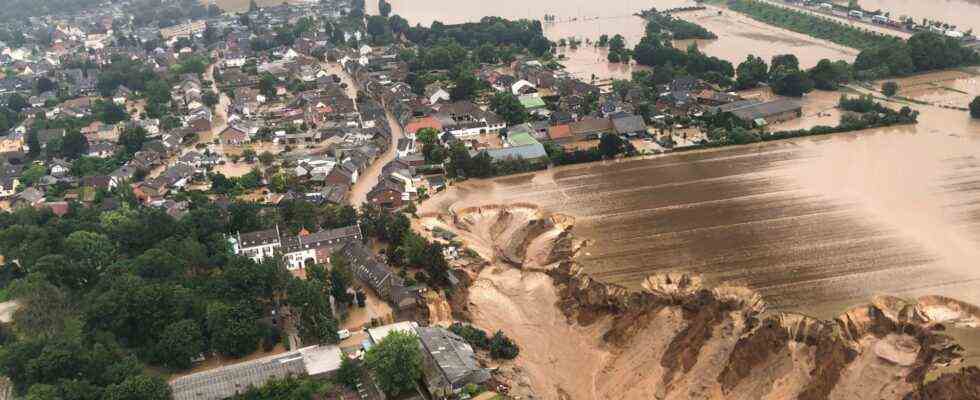Status: 07/20/2021 8:02 p.m.
Could the people in the flood area have been warned better with so-called cell broadcasting? The technology for the SMS system would be available. But it has not yet been used. What is it
From Christian Feld,
ARD capital studio Berlin
Angela Merkel and Armin Laschet stand behind desks with microphones in Bad Münstereifel. Behind them, a human chain passes Buckets on. This work is still the focus after the flood. But a discussion has long since begun: How can we reach as many people as possible with warnings in the future? The Chancellor was also asked at her press conference: Will she advocate introducing so-called cell broadcasting?
To put it somewhat simply, it is a type of SMS that appears on all mobile phones in a certain area. The IT security expert Manuel Atug describes it in an interview with the ARD capital studio so: “It’s like a scatter shot at all devices in the reception range of a cell tower.” In this way, people in a certain region can be provided with warning notices in a targeted manner.
Merkel open to additions
In Bad Münstereifel, Merkel initially refers to existing warning apps such as Nina or KatWarn. They would still work – via WLAN – if the cellular network had already collapsed. Merkel is at least open to cell broadcasting as a supplement. Laschet says: “I think we have to do this very quickly.” The day before he spoke about it with the CEO of a telecommunications provider.
“The technology has been around for decades. It is overdue for it to be introduced. Apparently there is a lack of political will,” says Manuel Atug. He is also the spokesman for the independent group AG KRITIS, which deals with critical infrastructures. Other countries such as the USA have such systems.
They could also be technically implemented in Germany, but no company has yet introduced them. A spokesman for Deutsche Telekom said that ARD capital studio: “We are partners of the public sector and are happy to provide support. This requires clear requirements and investments.”
And data protection?
In plain language: Politicians have to give the order, and that costs money. Armin Schuster, President of the Federal Office for Civil Protection and Disaster Aid (BBK), last spoke in a Deutschlandfunk interview of 30 to 40 million euros. Deutsche Telekom confirms that the Federal Office has been holding talks with telecommunications providers for some time. However, such a system cannot be launched from now on. It must be protected against attacks by third parties and provide authentication in order to avoid sending false and malicious reports.
Do data protection issues play a role in cell broadcasting? Since the warning messages are sent to all devices dialed into a radio cell, they do not have to be “addressed or identified by their telephone number,” according to Telekom. Privacy concerns could thus be allayed. From the point of view of IT security expert Atug, no personal data is generated: “It is the least data-poor and therefore the most recommendable implementation of a warning message.”
BBK President Schuster told the newspapers of the “Redaktionsnetzwerk Deutschland”: “My goal is to use a feasibility study to determine whether the introduction of cell broadcasting is sensible and feasible.” A result can be expected in autumn.

